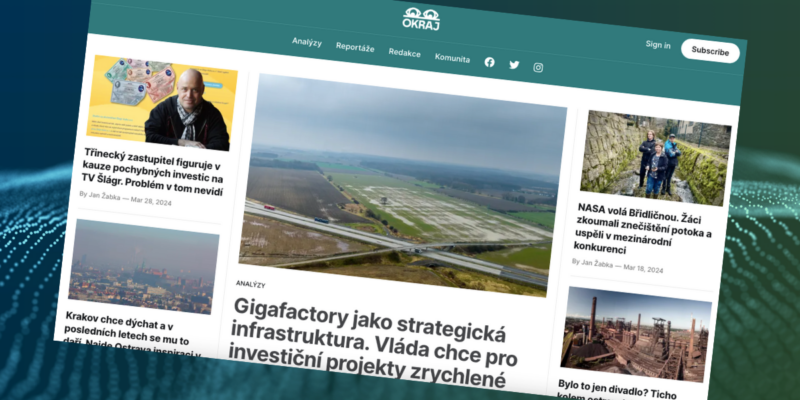The existence of a vibrant and independent local media ecosystem serving the public interests of its local communities is a cornerstone for our democratic societies. They are the key to empowering citizens to grasp and exercise their rights in the communities where they live. And they are better placed to gain trust and engagement from their native audience and to confront dis/misinformation. However, the very existence of these media has become uncertain across different parts of the European Union. The robustness of a region’s or community’s local media ecosystem also serves as a meaningful indicator of a state’s vulnerability to media capture, a growing and most worrying phenomenon in Europe.
The European Federation of Journalists (EFJ) with a consortium of partners, the Centre for Media Pluralism and Media Fredom (CMPF), International Media Support (IMS) and Journalismfund.eu. is launching a project “Local Media for Democracy” to help struggling local, regional and community media in the news desert areas in Europe by providing financial support and organisational capacity building. It will start on 1 February 2023 for a period of 18 months.
The overall objective of the project is to revive the local media landscape with measures to build resilience, independence, and sustainability by improving their capacity in innovation, business strategies, and audience engagement. Ultimately, it will help contribute to building an enabling environment where a pluralistic and independent media landscape in the EU can exist.
The project has four specific objectives: 1) to improve the knowledge base of the regional, local and community news media in the EU; 2) to provide quality and comprehensive data so that policy-makers make relevant and useful media policy to support regional, local and community news media especially those in dire need area, e.g. news deserts; 3) to provide support (both financial and technical support) to improve startup, local and regional media’s capacity to reach underserved communities and audiences with new products and services; & 4) to help local, regional and community news media build resilience and independence.
These objectives will be achieved with two main activities:
1) A mapping research on news deserts in the EU with direct research targets from local, regional and community news media or initiatives and those (journalists, editors and managers) working for these media on EU 27 Member States. The expected results will help define and identify existing and future news deserts, challenges and good practices, as well as policy recommendations targeting media stakeholders and national and European policy-makers to address these challenges.
2) A Media Funding Scheme will provide direct financial support and technical assistance targeting local, regional and community news media or initiatives in EU 27 Member States, especially those operating in areas defined as “news deserts” by the mapping. This action is expected to result in improving the operating capacity of the target media or initiatives (a total of ±30 grantees) so that they can better serve their community with quality and public-interest journalism.
The main outputs of the project will include:
- One mapping report on news deserts in the EU with infographics, one interactive map for websites, 27 country factsheets & 3 blog posts on case studies.
- ±30 local, regional and community news media or initiatives will receive financial support and technical support (mentorship).
- Evaluation reports of the grantees receiving the Media Funding Scheme.
- Web pages populated with the project activities.
- Dissemination & networking event “Local Media Festival”
This project is co-funded by the European Union.

Views and opinions expressed on this website are however those of the author (s) only and do not necessarily reflect those of the European Union. Neither the European Union nor the granting authority can be held responsible for them.













